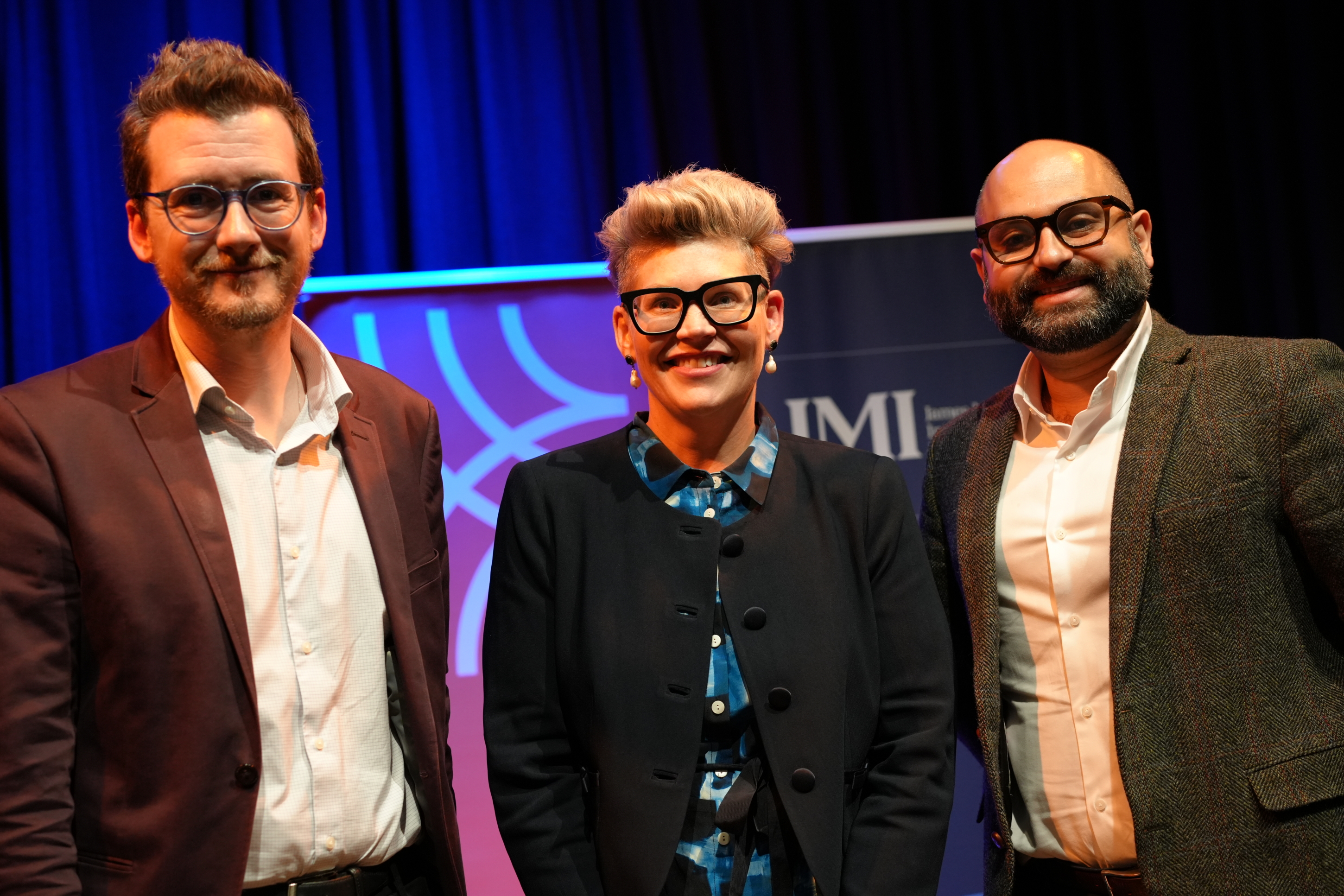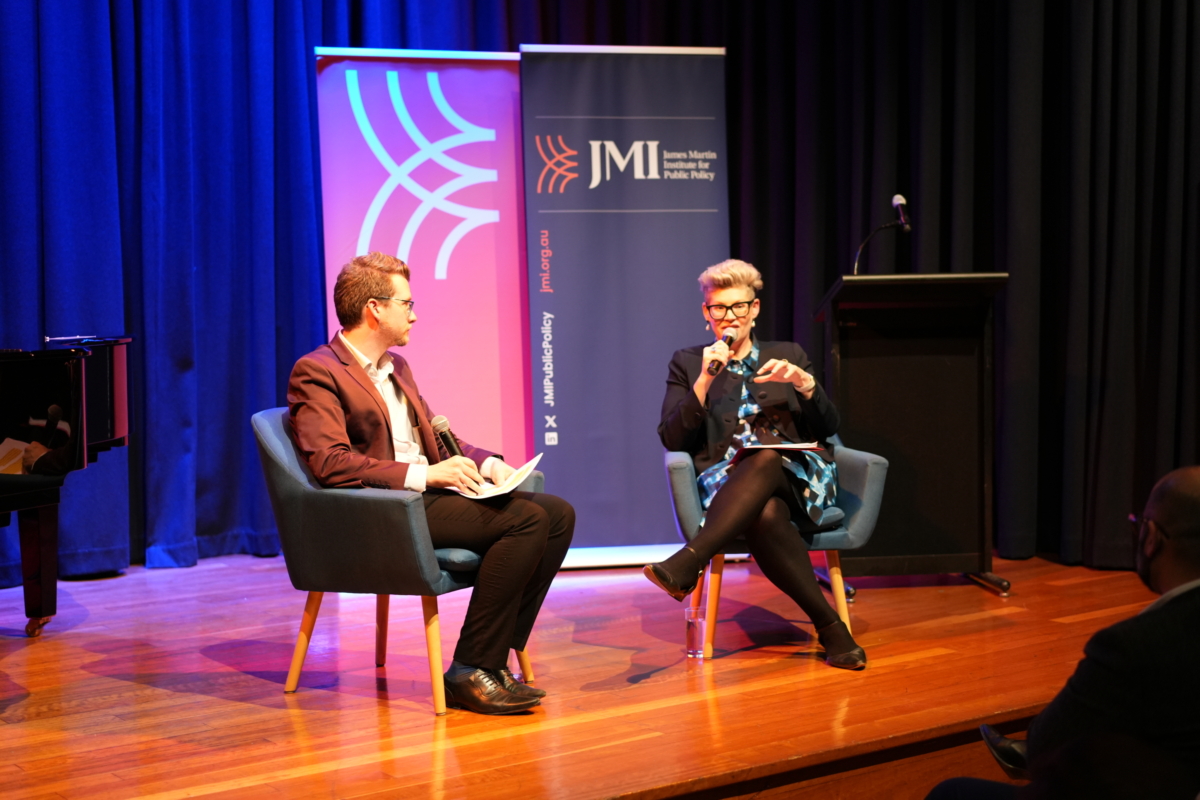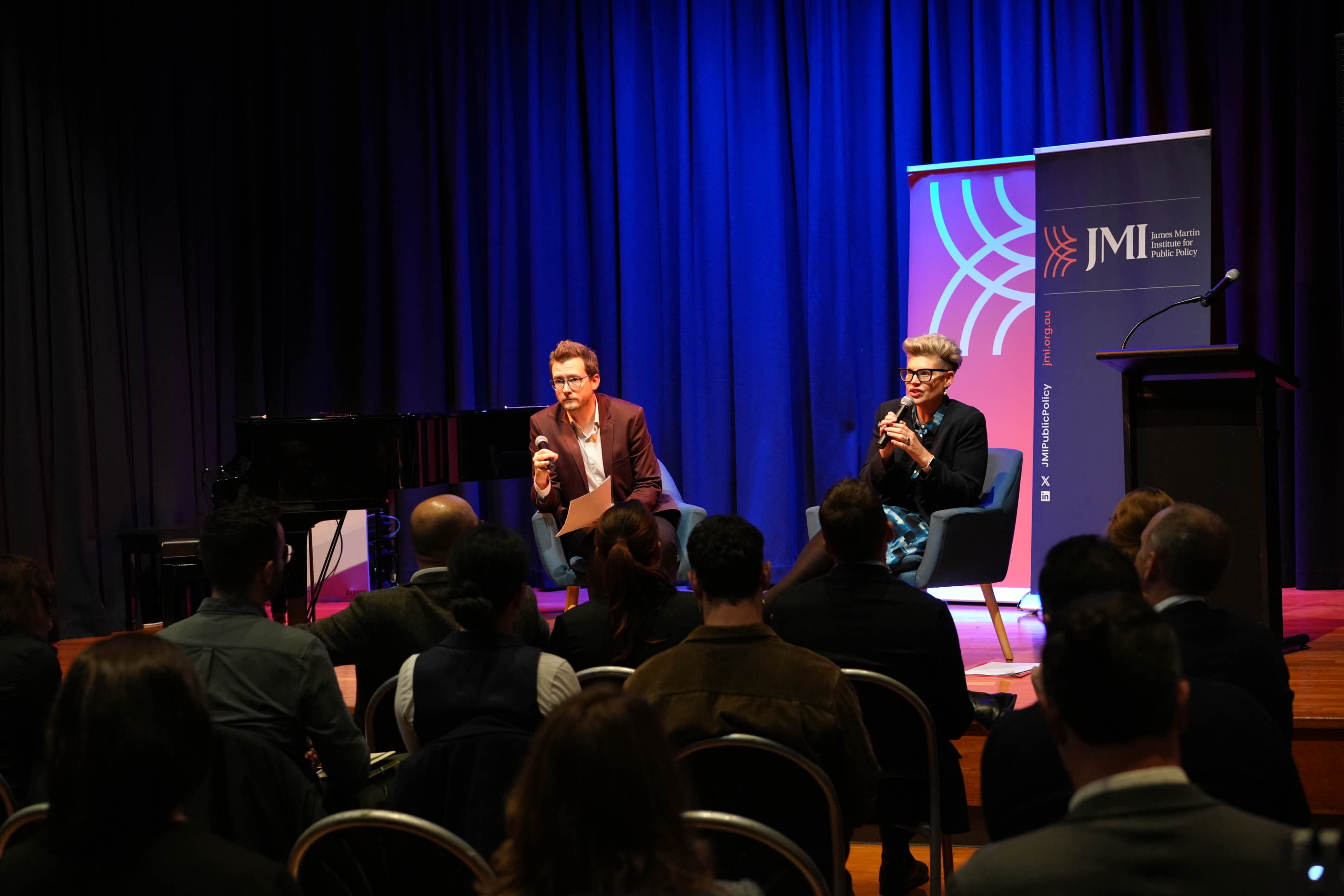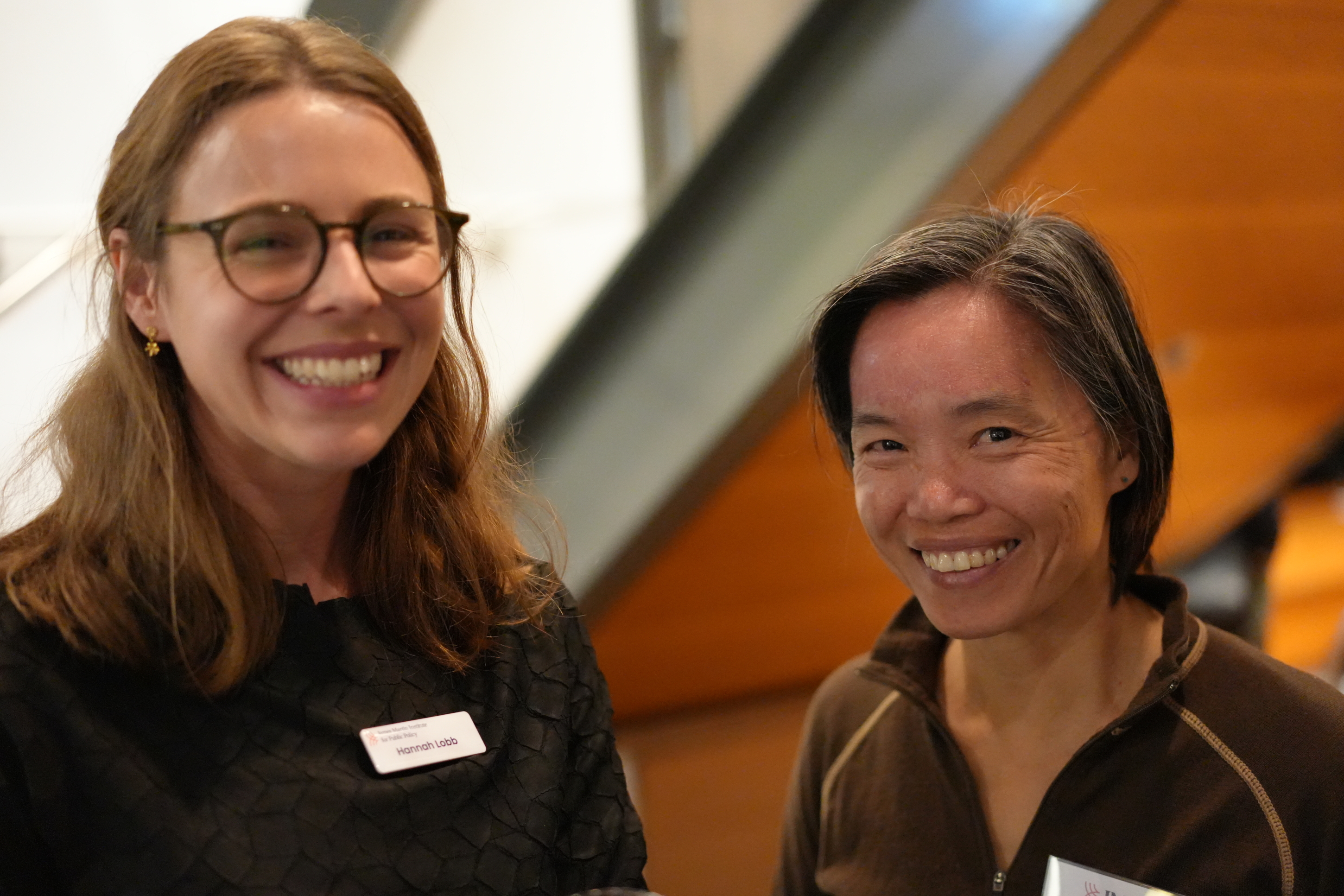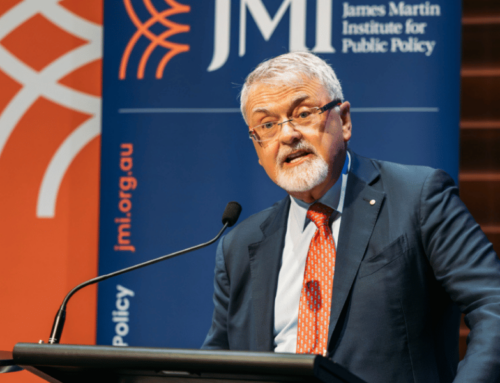On 28 May, the James Martin Institute for Public Policy launched the first in a series of Policy Talks events, which aim to build a community of policy professionals across sectors to foster innovation and inclusivity at all levels of government policy.
The event, which focused on affordable and accessible housing, featured Rebecca Pinkstone, inaugural Chief Executive of Homes NSW, in conversation with Professor Philip Oldfield, Head of School at UNSW Built Environment. Held at the Sydney Conservatorium of Music, it brought together policy experts from across government, as well as industry, academic and community representatives, to discuss how the NSW Government is tackling this issue and to highlight key considerations going forward.
Pinkstone, an experienced leader in social and affordable housing, discussed the auspices for the establishment of Homes NSW, which brings together housing and homelessness services delivered by the NSW Department of Communities and Justice as well as the Land and Housing Corporation and Aboriginal Housing Office. She highlighted the critical need to put tenants back at the heart of housing policy, working with local government, support partners, and key stakeholders to make a positive change.
While housing supply is often regarded as the most significant aspect of this challenge, the speakers highlighted that past efforts to boost housing supply alone have not always translated into greater affordability or accessibility. This issue requires a much broader set of policy tools, they argued.
The importance of catering to diverse needs and ensuring fair allocation processes for affordable housing units was also highlighted. Philip Oldfield raised new research by Sophie-May Kerr for the James Martin Institute in which the needs of diverse tenants – specifically families with young children – requires greater focus due to the rising number of children growing up in apartment homes.
The design and planning of new affordable housing supply was referenced in that regard. Well-designed living spaces that provide adequate light and ventilation are essential, as the COVID-19 lockdowns demonstrated. Likewise, housing policy must focus on local approaches and needs, particularly in rural, regional and remote areas.
The discussion also focused on the rental market crisis. Severe challenges are being faced by key workers in the private rental market, particularly those who lose their apartments and struggle to find new ones, which is increasingly seen in urban areas. Policies to ensure the fair treatment of tenants were considered crucial to address this issue. Additionally, the broader context of cost-of-living pressures and the speculative nature of housing as an asset were acknowledged as complicating factors, some of which are beyond state policy levers.
Insights from other cities – including Vienna, Paris, and, Barcelona, provided valuable lessons in different aspects of affordable and high-quality design. Cooperative housing models were raised by audience participants as potential solutions for the “missing middle” between private and public housing markets, though such models would require supportive policy and tax reforms.
The event concluded on a hopeful note, envisioning progress in the affordable and accessible housing landscape of NSW in the coming years. With effective policies, community collaboration, and innovative solutions, there is a strong potential for positive change, ensuring a brighter future for all residents.

